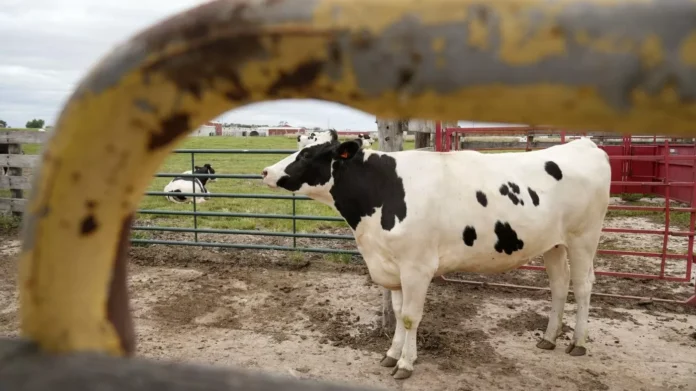Nearly a dozen agriculture commissioners from red states have taken a bold stance in the fight against climate change. In a letter exclusively obtained by The Hill, these commissioners have called for the elimination of federal funding to organizations that promote “net-zero” climate policies. This move has sparked a heated debate among top Trump administration officials and Republican lawmakers.
The letter, signed by agriculture commissioners from states such as Texas, Oklahoma, and Kansas, argues that the adoption of net-zero policies by certain organizations will have devastating effects on the agriculture industry. These policies aim to reduce carbon emissions to a level where they are balanced by carbon removal, thus achieving a net-zero carbon footprint. However, the commissioners believe that these policies will have a detrimental impact on farmers and ranchers, who are already facing numerous challenges in their line of work.
The agriculture commissioners have raised valid concerns about the potential consequences of net-zero policies. They argue that the implementation of these policies will result in increased costs for farmers, making it difficult for them to compete in the global market. This, in turn, could lead to a decline in agricultural production, affecting not only the farmers but also the consumers who rely on their products.
Furthermore, the letter highlights the fact that many of the organizations promoting net-zero policies are based in urban areas and lack a true understanding of the challenges faced by rural farmers. The commissioners believe that these organizations are pushing for policies that may work in cities but are not feasible in rural areas. They fear that the implementation of net-zero policies will only widen the already existing urban-rural divide.
The commissioners also point out that the agriculture industry has already taken significant steps towards reducing its carbon footprint. Farmers have been implementing sustainable practices, such as no-till farming and precision agriculture, to reduce their environmental impact. These efforts should be acknowledged and supported rather than burdening farmers with additional regulations and costs.
The call to eliminate federal funding to organizations promoting net-zero policies is a bold move, but it is one that is necessary for the future of the agriculture industry. The commissioners are not denying the existence of climate change or the need for action. However, they believe that the current approach of promoting net-zero policies is not the right solution.
Instead, the commissioners are urging the Trump administration and Republican lawmakers to focus on supporting the agriculture industry in its efforts to reduce carbon emissions. This can be achieved through investments in research and development of new technologies that can help farmers become more sustainable. Additionally, the commissioners are calling for the implementation of policies that take into account the unique challenges faced by the agriculture industry.
The letter has sparked a debate among top officials and lawmakers, with some supporting the call to eliminate federal funding for net-zero policies, while others argue that these policies are necessary to combat climate change. However, what is clear is that the agriculture commissioners have brought attention to an important issue that needs to be addressed.
The agriculture industry is a vital part of our economy and plays a crucial role in feeding the nation. It is also one of the industries most affected by the changing climate. Therefore, it is essential that any policies implemented to combat climate change take into account the impact on the agriculture industry.
In conclusion, the call by nearly a dozen agriculture commissioners to eliminate federal funding for organizations promoting net-zero policies is a significant step towards finding a more sustainable and feasible solution to combat climate change. It is a call to support the agriculture industry and its efforts towards reducing its carbon footprint. Let us hope that this letter will spark meaningful discussions and lead to policies that benefit both the environment and the agriculture industry.

